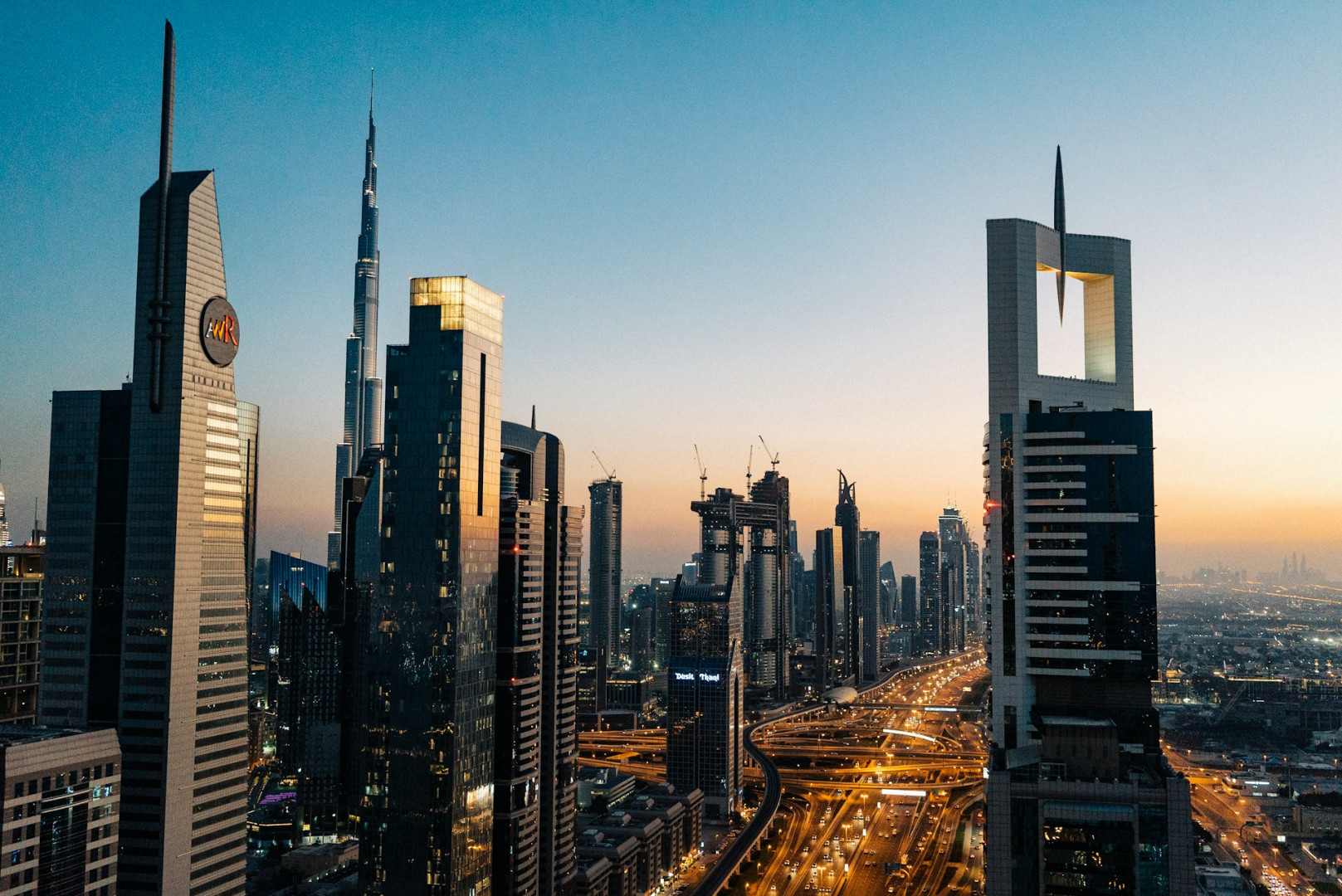
Off-plan properties
About us
Dubai real estate is booming — and foreigners are welcome. Whether you're an investor chasing high yields, or simply looking for a second home in the sun, buying property in Dubai is surprisingly straightforward. But understanding the process, fees, and legal details is key to making a smart move.
In this guide, we’ll walk you through everything you need to know about buying real estate in Dubai as a foreigner — without sugarcoating or fluff.
Yes — and that’s exactly why Dubai has become one of the world’s hottest real estate markets. Since 2002, non-residents have been allowed to purchase property in designated freehold areas. This means full ownership in your name, with the property registered at the Dubai Land Department (DLD).
You don’t need a UAE residency visa to buy — foreigners and expats enjoy the same property rights as locals. For many investors, this transparency and security is what makes Dubai so attractive compared to other global markets.
Freehold zones cover some of Dubai’s most desirable neighborhoods, each with its own lifestyle and investment appeal:
| Area | Typical Price (1BR) | Investment Highlights |
|---|---|---|
| Downtown Dubai | from $500,000 | The city's heart — luxury apartments with iconic views of Burj Khalifa and Dubai Fountain. |
| Dubai Marina | from $400,000 | Waterfront living with yachts, cafés, and one of the highest rental demand areas in Dubai. |
| JVC (Jumeirah Village Circle) | from $250,000 | Budget-friendly entry point with strong ROI potential (up to 7%). |
| Business Bay | from $350,000 | Central business hub, popular with professionals and young expats. |
| Palm Jumeirah | from $600,000 | Dubai's iconic island — prestige, exclusivity, and limited supply. |
In short, foreigners can own in the most dynamic parts of the city — whether it’s the bustling Downtown, the highly rentable Marina, or the prestigious Palm Jumeirah.
Key point: ownership is 100% in your name, and every transaction is officially registered with DLD, ensuring safety and transparency.
Before you look at listings, get clear on your goal:
Each strategy requires a different location, budget, and property type.
Always work with a RERA-licensed broker or a reputable developer. Dubai’s real estate market is regulated, but fast-moving — and not every agent has your interests in mind.
Tip: Ask for rental yield projections, service charge estimates, and resale liquidity insights. If all they offer is drone shots and payment plans — run.
Once you've chosen a unit:
This holds the property while legal checks are made.
Carefully review the Sales and Purchase Agreement (SPA). Check:
For ready properties:
For off-plan:
When purchasing property in Dubai, the advertised price is only part of the story. Buyers should factor in several additional costs and fees that are standard across the market. Here’s a full breakdown:
| Expense | Typical Cost | Notes |
|---|---|---|
| Property Price | From $250,000 (for a 1BR apartment) | Entry-level for freehold areas like JVC; prime locations such as Downtown or Palm Jumeirah start significantly higher. |
| DLD Transfer Fee | 4% of property value | This is the biggest mandatory fee, paid to the Dubai Land Department (DLD) for registering ownership. It is split between buyer and seller by agreement, but in practice, the buyer usually pays it in full. |
| Registration / Admin Fees | AED 5,000–10,000 | Covers the cost of issuing the title deed and processing paperwork at the DLD. Paid upfront at the time of registration. |
| Agent Commission | ~2% of purchase price (resale only) | Applies when buying from a private seller on the secondary market. Not charged for direct off-plan purchases from developers. |
| NOC Fee | AED 500–5,000 (resale only) | A No-Objection Certificate issued by the developer, confirming that the property is free of outstanding service charges or debts. The exact cost depends on the community and developer. |
| Mortgage Fees (if applicable) | ~1% of loan amount + AED 2,500–3,000 admin charges | Charged by the bank for processing and registering the mortgage. Also includes a property valuation fee, usually AED 2,500–3,000. |
Unlike many global cities, Dubai has no annual property tax, no capital gains tax, and no income tax on rental yields. This makes the ongoing cost of ownership significantly lower, boosting net ROI for both short-term and long-term investors.
In London or New York, annual property taxes can add thousands of dollars in holding costs. In Dubai, once you’ve paid the transfer fee and registration charges, your main recurring expenses are service charges (building maintenance, security, amenities) — which vary by project and are worth checking before you buy.

| Expense | Dubai | London (UK) | New York (USA) | Singapore |
|---|---|---|---|---|
| Property Price (1BR, prime area) | from $500,000 (Downtown, Palm Jumeirah) | from $800,000 (Central London) | from $900,000 (Manhattan) | from $700,000 (Central districts) |
| Transfer Tax / Stamp Duty | 4% DLD transfer fee | 5–12% Stamp Duty (progressive) | 1–3% NYC Transfer Tax + 0.4–1.425% Mortgage Recording Tax | 1–4% Buyer's Stamp Duty (BSD) + 20% Additional BSD for foreigners |
| Registration / Admin Fees | AED 5,000–10,000 (~$1,400–$2,700) | ~£500–£1,000 | ~$1,000–$2,000 | ~$500–$1,000 |
| Agent Commission | ~2% (resale only) | 1.5–3% | 2–6% | 1–2% |
| Mortgage Fees | ~1% loan amount + AED 2,500–3,000 valuation fee | Arrangement fee ~1% + £500–£1,000 valuation | ~$500–$1,500 application + appraisal | ~1% loan amount + admin charges |
| Annual Property Tax | None | ~1–3% of property value | ~0.9–2% of property value | ~0.5–0.7% of property value |
| Capital Gains Tax | None | 18–28% | ~15–20% (federal + state) | up to 17% |
| Income Tax on Rental | None | 20–45% (progressive, after allowances) | ~25–35% (federal + state) | up to 22% |
| Recurring Costs | Only service charges (~$15–$30 per sq.m annually) | Council tax, service charges, insurance | Property tax, HOA fees, insurance | Property tax, maintenance, management fees |
Dubai is unique among global real estate hubs: after the one-time 4% DLD fee and registration charges, there are no ongoing property taxes.
In London or New York, property taxes and income taxes on rental can eat a large share of ROI.
In Singapore, high stamp duties — especially for foreign buyers — make entry costs steep.
In Dubai, the only recurring expense is the service charge (covering security, maintenance, and amenities), which varies by project but is usually predictable.
This is why Dubai consistently ranks as one of the highest-yielding property markets for global investors — gross ROI of 6–8% often translates into strong net returns, since tax leakage is minimal.
Yes, non-resident mortgages are available from local banks. Typical terms:
Approval depends on:

| Feature | Off-Plan | Ready Property |
|---|---|---|
| Entry Price | Lower | Higher |
| Payment Terms | Installments | Full upfront or mortgage |
| Rental Income | Later | Immediate |
| Risk | Completion delays | Minimal |
Off-plan is ideal for long-term capital gains. Ready units are better for those seeking rental returns now.
Yes — Dubai offers property-linked residency visas:
| Property Value | Visa Type | Duration |
|---|---|---|
| AED 750,000+ (~$204,000) | Investor Visa | 2 years (renewable) |
| AED 2,000,000+ (~$545,000) | Golden Visa | 10 years (renewable) |
Visa allows you to:
At DDA Real Estate, we work with trusted developers and screen projects based on actual performance — not just marketing. Whether you're after rental yield, long-term growth, or residency, we’ll guide you through every step.
Let’s talk. Your Dubai property journey starts with a clear strategy — not a sales pitch.